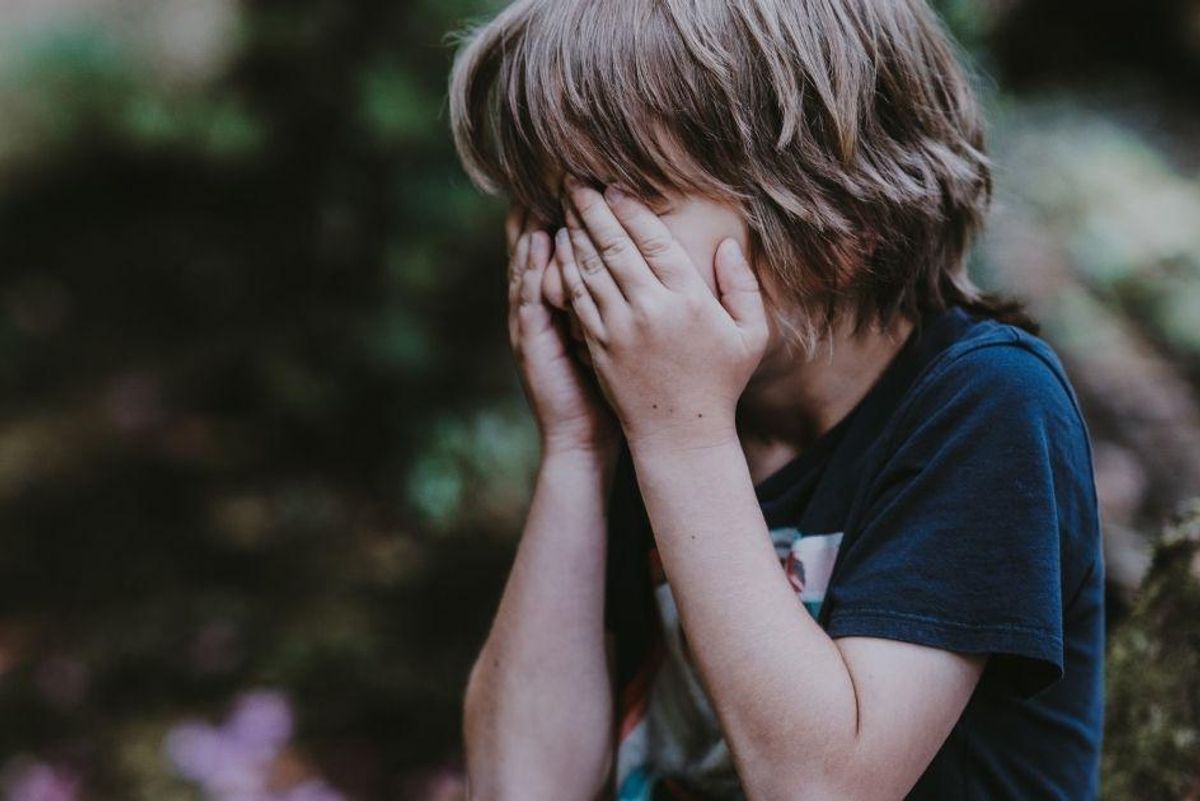Spanking can alter kids' brain development the way more severe abuse does, new study finds

Researchers at Harvard University have studied the connection between spanking and kids' brain development for the first time, and their findings echo what studies have indicated for years: Spanking isn't good for children.
Comments on this article will no doubt be filled with people who a) say they were spanked and "turned out fine" or b) say that the reason kids are [fill in the blank with some societal ill] these days are because they aren't spanked. However, a growing body of research points to spanking creating more problems than it solves.
"We know that children whose families use corporal punishment are more likely to develop anxiety, depression, behavior problems, and other mental health problems, but many people don't think about spanking as a form of violence," said Katie A. McLaughlin, director of the Stress & Development Lab in the Department of Psychology, and the senior researcher on the study which was published Friday in the journal Child Development. "In this study, we wanted to examine whether there was an impact of spanking at a neurobiological level, in terms of how the brain is developing."
You can read the entire study here, but the gist is that kids' brain activity was measured using an MRI machine as they reacted to photos of actors displaying "fearful" and "neutral" faces. What researchers found was that kids who had been spanked had similar brain neural responses to fearful faces as kids who had been abused.
"There were no regions of the brain where activation to fearful relative to neutral faces differed between children who were abused and children who were spanked," the authors wrote in a statement.
"While we might not conceptualize corporal punishment to be a form of violence, in terms of how a child's brain responds, it's not all that different than abuse," said McLaughlin. "It's more a difference of degree than of type."
It seems to make sense when you consider that hitting a child on the bottom isn't fundamentally different from hitting them anywhere else on their body. Open or closed hand, a strike is a strike, and a strike is, by definition, violence.
In full disclosure, I wasn't spanked as a child. My husband and I have also never spanked our own kids, who are now a tween, a teen, and an adult. (And quite delightful, well-behaved human beings, I might add.) The majority of our close family friends have not spanked their kids, and we've also watched those kids grow into delightful, well-behaved human beings.
When you don't grow up with spanking, the idea honestly seems very strange. I'd no sooner hit my children on the bottom as hit them anywhere else, and I've never understood why people think that a slap on the buttocks—an area that feels quite private to me—is somehow less problematic than a slap across the face. I understand that people might see spanking differently if they're raised with it, but when it isn't something you grow up with, it's just weird.
It's also just not necessary. I've seen people argue that there are certain situations where spanking is either necessary or the most effective means of addressing a behavior, usually in situations of safety. I know many parents, for instance, think a quick smack on the bottom is an appropriate response to a small child running into the road. Little kids don't understand reason, the argument goes. However, there are other ways to instill a desirable fear into a child who doesn't understand a mortal danger.
When my wee ones headed toward the road, I grabbed them and scooped them up and showed them my own fear—with some purposeful drama thrown in for good measure—"Oh my gosh, sweetie! Are you okay?! That was SO scary! I was afraid a car was going to SQUASH you! Let me look at you." Then I checked them over, head to toe, and expressed my relief that they were okay. That did the trick with all three of them.
People often mistake positive parenting for pushover parenting, but it's not. My kids have boundaries. They are taught to be respectful to everyone, me included, and to behave like civilized humans. But kids can be taught those things through non-violent means. I can't think of a single thing that spanking would address better than methods that don't involve slapping a part of someone's body—especially a part that would be considered sexually inappropriate in any other context.
As more and more research shows that spanking isn't just unnecessary but potentially harmful, parents may wish to reconsider spanking as a method of discipline, which is the message the study authors hope people take away from this research.
"It's important to consider that corporal punishment does not impact every child the same way, and children can be resilient if exposed to potential adversities," said lead study author Jorge Cuartas. "But the important message is that corporal punishment is a risk that can increase potential problems for children's development, and following a precautionary principle, parents and policymakers should work toward trying to reduce its prevalence."
- As a little girl, abuse made her ashamed of her body. Then she ... ›
- Pediatricians have just declared that spanking under any ... ›
- The science of spanking: What happens to some spanked kids when ... ›
- Wales joins more than 60 other countries in outlawing spanking - Upworthy ›





 Rihanna Nails GIF
Rihanna Nails GIF Dexters Laboratory What A Fine Day For Science GIF
Dexters Laboratory What A Fine Day For Science GIF The bread doesn't lie. Facebook/Jaralee Metcalf
The bread doesn't lie. Facebook/Jaralee Metcalf A Gen X text convo with Gen ZPhoto credit: Annie Reneau
A Gen X text convo with Gen ZPhoto credit: Annie Reneau Oh Yeah Mic Drop GIF by Taylor Bisciotti
Oh Yeah Mic Drop GIF by Taylor Bisciotti